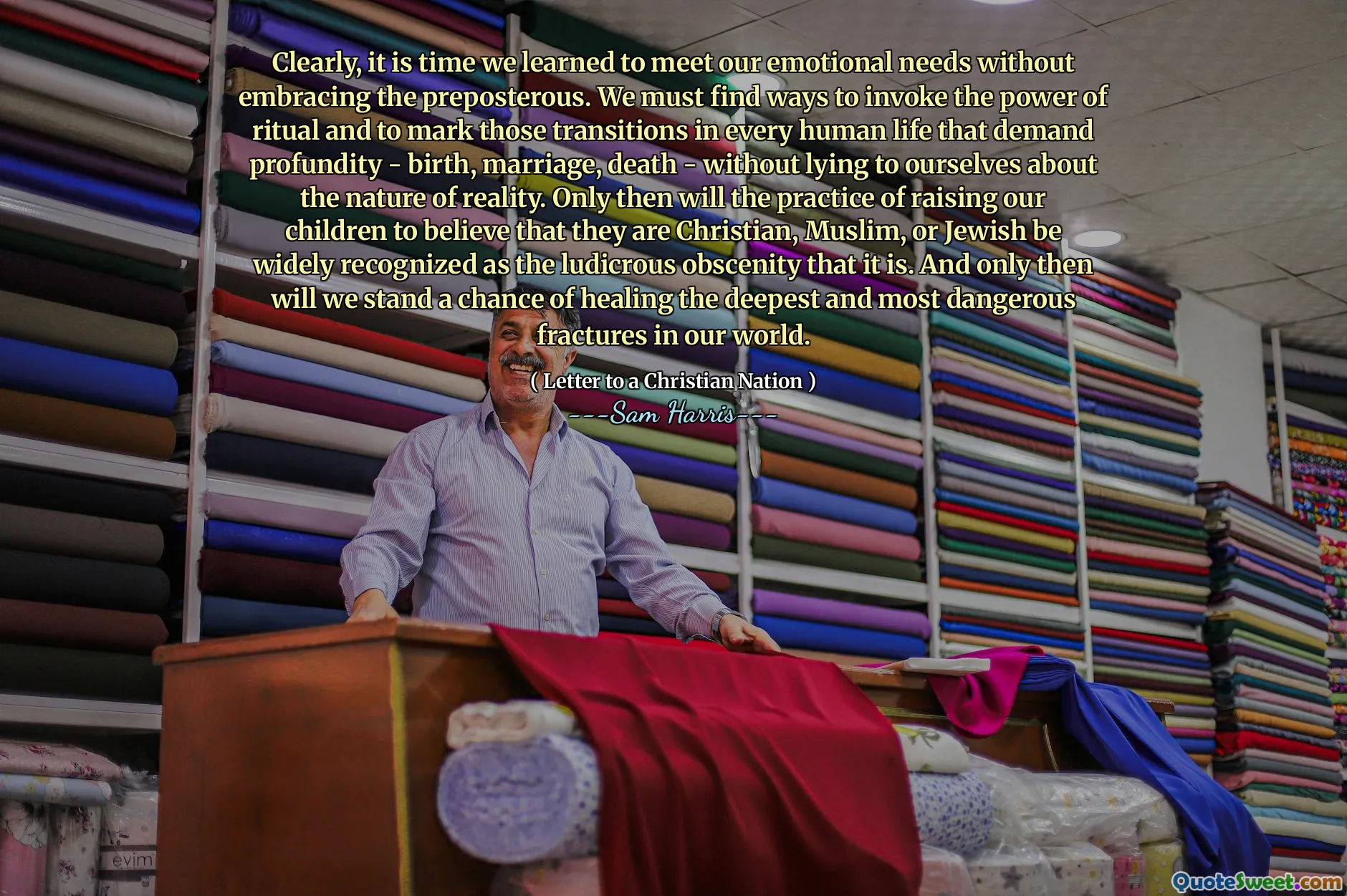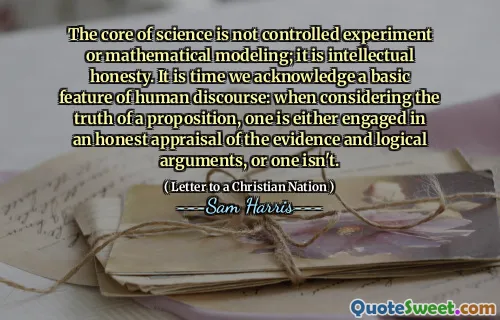
Clearly, it is time we learned to meet our emotional needs without embracing the preposterous. We must find ways to invoke the power of ritual and to mark those transitions in every human life that demand profundity - birth, marriage, death - without lying to ourselves about the nature of reality. Only then will the practice of raising our children to believe that they are Christian, Muslim, or Jewish be widely recognized as the ludicrous obscenity that it is. And only then will we stand a chance of healing the deepest and most dangerous fractures in our world.
This quote presents a searing critique of the common practice of instilling religious identities in children, urging instead for a sincere engagement with reality and a thoughtful approach to the rituals that surround life’s pivotal moments. The author challenges us to reconsider how we fulfill our emotional needs, pushing us away from the acceptance of what he terms the 'preposterous'—likely referring to faith-based beliefs held without evidence—and toward a grounded experience of life's profound transitions. This perspective encourages a cultural shift where rituals around birth, marriage, and death are stripped of religious dogma yet retain their emotional and symbolic significance.
By calling religious upbringing a 'ludicrous obscenity,' the quote confronts a deeply entrenched societal norm, highlighting the potential harm in indoctrinating children into specific belief systems prematurely. This radical stance compels reflection on the ethics of parenting and education, questioning whether imposing religious identity on children inhibits genuine understanding and exacerbates societal divisions. The aspiration to heal 'the deepest and most dangerous fractures in our world' ties personal and familial practices to broader global peace and cohesion, suggesting that religious exclusivism and sectarian identity contribute significantly to conflict.
In essence, the passage advocates for honesty about reality combined with meaningful communal practices—rituals that unite rather than divide without reliance on supernatural justification. It invites us to envision a future where emotional fulfillment and cultural tradition coexist without deception, fostering a more tolerant and unified human experience. This is a powerful and provocative call to rethink how we engage with faith, tradition, and the shaping of young minds.







